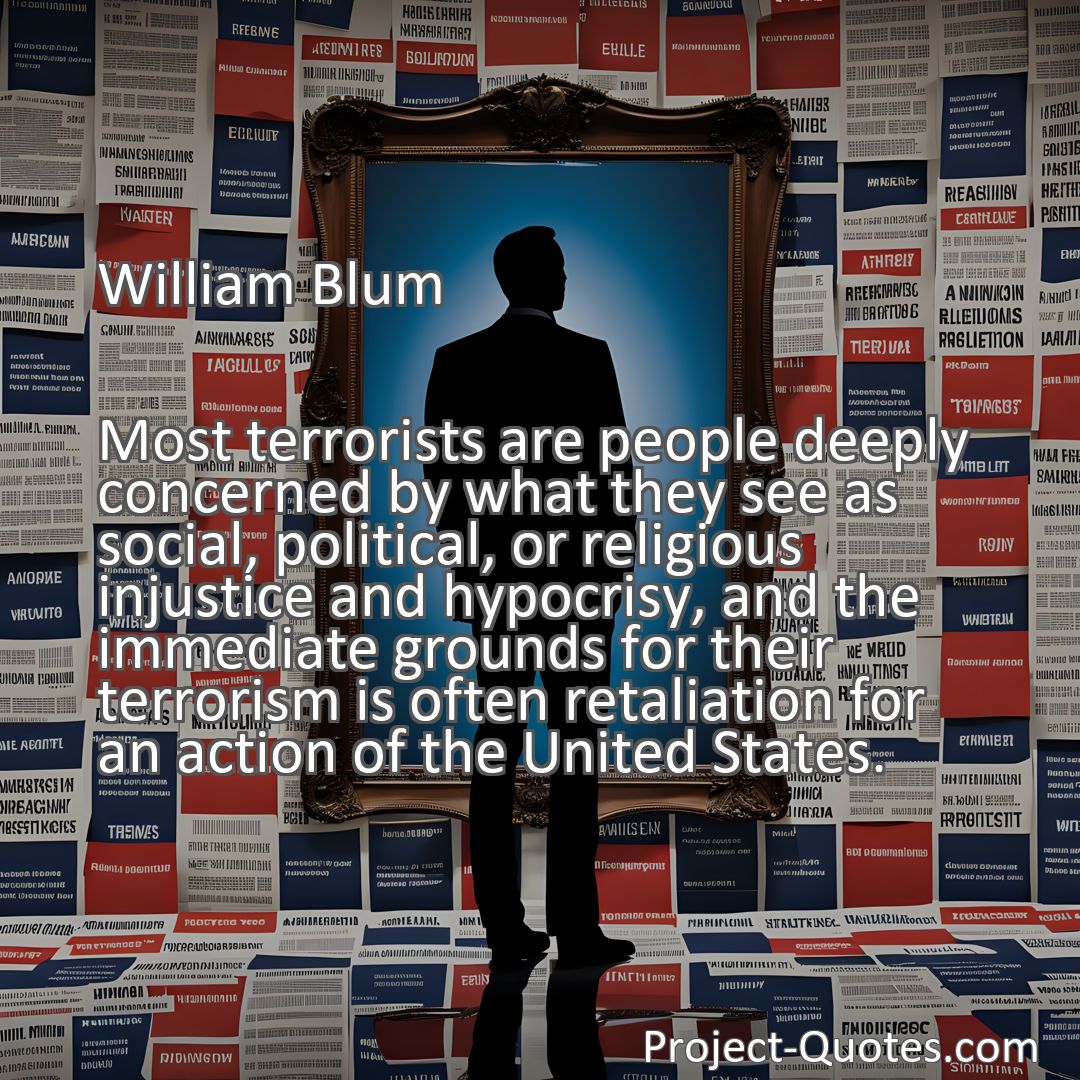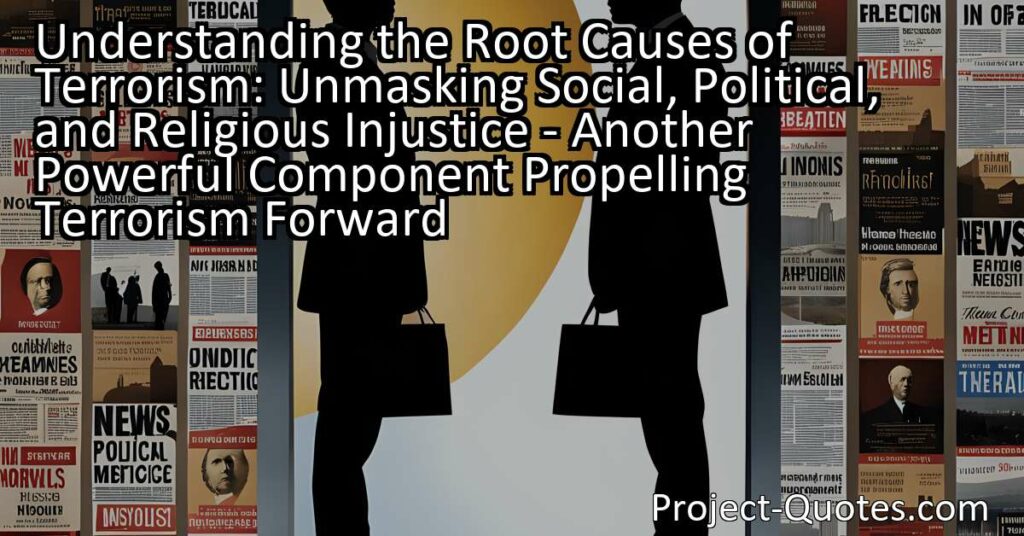William Blum
Understanding the Root Causes of Terrorism: Unmasking Social, Political, and Religious Injustice – Another Powerful Component Propelling Terrorism ForwardExplore the complex motivations behind terrorism, including social, political, and religious injustices that drive individuals to resort to violence. Discover how perceived hypocrisy and inequality fuel acts of terrorism, and consider proactive measures to address these root causes and create a more peaceful and equitable world. Recognize the powerful role that injustice plays in propelling terrorism forward and the need for comprehensive solutions to combat this global issue.
Table of Contents
- 1 Most terrorists are people deeply concerned by what they see as social, political, or religious injustice and hypocrisy, and the immediate grounds for their terrorism is often retaliation for an action of the United States.
- 2 William Blum
- 3 Meaning of Quote – Most terrorists are people deeply concerned by what they see as social, political, or religious injustice and hypocrisy, and the immediate grounds for their terrorism is often retaliation for an action of the United States.
- 4 Freely Shareable Quote Image
- 5 Related
Understanding the Root Causes of Terrorism: Unmasking Social, Political, and Religious Injustice
Introduction
In his thought-provoking statement, author William Blum explores the motivations behind terrorism, shedding light on the complex interplay of social, political, and religious factors that often drive individuals to resort to violence. Blum suggests that terrorists are primarily driven by a deep concern for addressing perceived injustices and hypocrisy in society. This essay aims to expand on Blum’s quote and delve into the root causes of terrorism, highlighting the role of the United States in these actions. By examining the underlying issues fueling terrorism, we can strive to foster a more peaceful and equitable world.
Understanding Terrorism
Before we begin to unravel the motivations behind terrorism, it is crucial to have a clear understanding of what terrorism entails. Terrorism refers to the use of violence or the threat of violence to intimidate, instill fear, and provoke significant political, social, or religious change. Although the violent acts committed by terrorists are never justified, it is essential to recognize that these actions often stem from deep-seated frustrations and grievances.
Injustice and Hypocrisy
One of the key drivers behind terrorism is the perception of social, political, or religious injustice and hypocrisy. Throughout history, marginalized groups and individuals have experienced institutionalized forms of discrimination, reinforcing their feelings of frustration and hopelessness. For many terrorists, their acts are a form of retaliation against what they perceive as oppressive systems that perpetuate inequality and suffering.
Political Injustice
Within the realm of political injustice, terrorists often perceive the United States as a major actor stimulating their actions. The United States’ involvement in foreign affairs, particularly its interventions in other countries’ political dynamics, has significantly shaped global perceptions. Blum posits that retaliation for these actions is often the immediate motivation for terrorist attacks. However, it is important to note that the motivations behind terrorism can vary across different groups, and not all acts of terrorism are solely directed at the United States.
Social Injustice
Terrorists also frequently cite social injustices to justify their actions. Poverty, unemployment, and lack of access to education and healthcare contribute to a sense of despair and disillusionment among individuals who may ultimately be susceptible to extremist ideologies. The failure to address these social inequalities can create fertile ground for terrorist recruitment, as extremist groups may offer a sense of belonging and purpose to those feeling marginalized by society.
Religious Injustice
Religious injustice is another powerful component propelling terrorism forward. In some cases, individuals feel their religious beliefs are devalued, ridiculed, or suppressed by dominant societies. This perceived disrespect can fuel a sense of indignation and a desire to defend their religious identity using violent means. It is important to separate the vast majority of peaceful religious adherents from the actions of a few extremists who manipulate religion for their own purposes.
Addressing the Root Causes
To effectively counter terrorism, it is necessary to address its root causes. An all-encompassing approach that addresses social, political, and religious injustices is crucial for dismantling the allure of terrorism to disenfranchised individuals. Proactive measures to promote peace, social equality, education, and economic opportunities can help create more inclusive societies. Additionally, ensuring fair governance and respect for human rights, both domestically and internationally, is essential to reducing the perceived hypocrisy that terrorists exploit.
Conclusion
While terrorism remains a grave and complex issue plaguing our world, it is vital to recognize the underlying motivations that drive individuals to commit such acts of violence. William Blum’s quote aptly highlights the link between social, political, and religious injustice and the immediate grounds for terrorism. By addressing the root causes that give rise to terrorism, we can work towards a future where social, political, and religious freedom exist alongside peace, fostering a more equitable and compassionate society for all.
I hope this quote inspired image brings you hope and peace. Share it with someone who needs it today!


